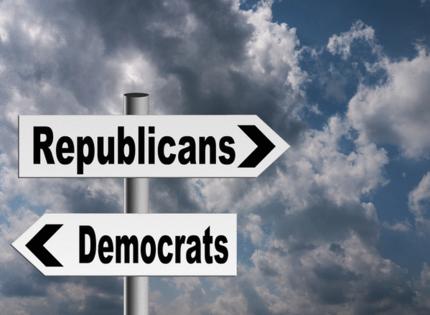Commentary: No country for young politicians -- and how to fix that
Published in Op Eds
In democracies around the world, young people have started new political parties whenever the establishment has sidelined their views or excluded them from policymaking. These parties have sometimes reinvigorated political competition, compelled established parties to take previously neglected issues seriously, or encouraged incumbent leaders to find better ways to include and reach out to young voters.
In Europe, a trio in their twenties started Volt in 2017 as a pan-European response to Brexit, and the party has managed to win seats in the European Parliament and in some national legislatures. In Germany, young people concerned about climate change created Klimaliste, a party committed to limiting global warming to 1.5 degrees Celsius, as per the Paris Agreement. Although the party hasn’t won seats at the federal level, they have managed to win some municipal elections. In Chile, leaders of the 2011 student protests, who then won seats as independent candidates, created political parties like Revolución Democrática and Convergencia Social to institutionalize their movements. In 2022, one of these former student leaders, Gabriel Boric, became the president of Chile at 36 years old.
But young people in the United States can’t do this. This is not because they are uniquely apathetic or disinterested in politics. Rather, as a new Protect Democracy and New America report argues, it is because the winner-take-all electoral system makes it nearly impossible to create new political parties in the U.S. A more proportional and permissive electoral system would allow young people to realistically start new political parties, and the enhanced electoral competition from having more parties would also jolt the existing parties into doing a better job of appealing to young voters and investing in young candidates.
In a winner-take-all system, only the one candidate with the most votes wins the representation of the entire district, so voters and parties organize around the two candidates that have a shot at winning, resulting in a two-party system. Voters, wary of wasting their votes, vote for the candidate who might win, even if it means not voting for their preferred candidate. Third parties don’t enter races because they know voters won’t waste their vote on them or because they could spoil the election. In proportional systems, even if a party or candidate doesn’t come up at the top, they can still win a seat, so voters are more likely to vote sincerely, and smaller parties are more likely to be created and participate in elections.
Besides making it easier for young people to start a party, proportional systems can also improve the participation of young people in politics through other mechanisms. While in winner-take-all systems, electoral victory depends on swing voters; In proportional systems, parties can win more seats with additional votes, so they have incentives to include young candidates on their candidate lists to appeal to young voting groups. Moreover, because multiple candidates can win in a district under proportional representation, parties can run young candidates without necessarily displacing older politicians. This makes it easier for parties to invest in young political talent while keeping experienced incumbents.
Without a proportional electoral system, young political entrepreneurs in the U.S. don’t have the option of creating partisan alternatives. Instead, they have to work within the parties and dislodge incumbents if they want to win a seat and have real influence. Needless to say, older incumbents are in no rush to step aside for young politicians.
For the rest of young people frustrated with the existing parties, the two-party system forces them to either choose between voting for the party they consider the least worst or not vote at all. For many young people who do not feel represented by the two parties and who feel that politics is not working for them, disengaging from politics becomes a rational response. But this disengagement creates a vicious cycle: if young people don’t participate as much in elections, candidates don’t seek out their votes, which further alienates young people from politics, and so on.
As a result, older people dominate American politics to the point that many now refer to the country as a gerontocracy, ruled by older people. Among OECD countries, the U.S. stands out for having the biggest age divide between elected officials and constituents and for having the highest share of representatives over 60 years of age. While older age comes with experience, the exclusion of young people from politics means the country is missing out on the talent, ideas, and energy of younger generations, and risking that young voters turn their backs on democracy.
Electoral reforms, like the adoption of proportional representation, can bring young people back into politics and improve politics for all. So while organizing around a new party is a fool’s errand right now, organizing around electoral reforms may be a winning strategy for disaffected young people and for the country overall.
____
Oscar Pocasangre is a senior data analyst at New America.
_____
©2025 The Fulcrum. Visit at thefulcrum.us. Distributed by Tribune Content Agency, LLC.
























































Comments